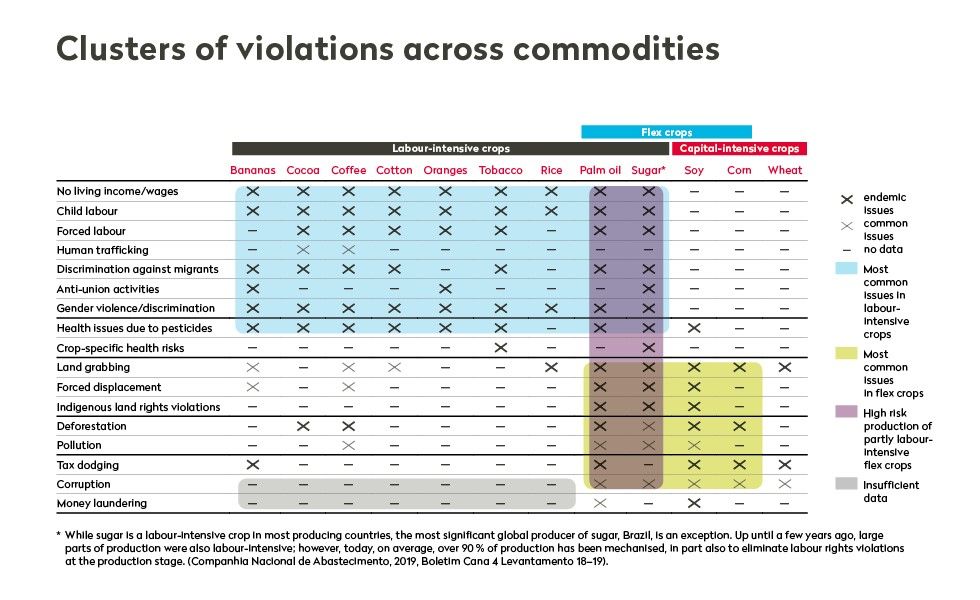Clusters of issues according to systems of production
 ©
John Moore / GettyImages
©
John Moore / GettyImages
In the production of labour-intensive crops such as bananas, cocoa, coffee, cotton, oranges, oil palms and in some cases sugar cane, human and labour rights violations can be considered endemic, meaning they occur systematically and to some extent independently of the location of production or value chain. This is certainly true in relation to the lack of a living income and living wages and certain forms of modern slavery.
In capital-intensive commodities such as soy, corn or wheat, fewer labour rights violations occur at the production stage, due mainly to the high degree of mechanisation and thus low number of people involved in labour. But human rights violations occur frequently in the value chains of these crops, mainly through deforestation, land grabbing, and the dangerous use of pesticides. As a result of the overall increase in production, a large number of cases associated with land conflicts have been linked to the production of flex crops such as sugar cane, oil palm, and soy.
Moreover, several other infringements can be tied to the production and trade of agricultural commodities, such as tax dodging or corruption through links to PEP. Most known cases involve capital-intensive crops such as grains but it is not limited to these crops. The reasons for these violations are the physical presence of the actors in the countries of production in combination with the large potential profits, the actors involved (foreign functionaries, PEP, etc.), the lack of transparency regarding prices and the absence of specific regulation in this area.

The root of these injustices lies in the power asymmetry found in the global agro-food sector. The unequal distribution of power, especially between large agricultural traders (and retailers) and weakly organised small-scale producers and workers leads to grossly unequal bargaining power, with heightened risk of infringing the human rights of already disadvantaged people. It enables and perpetuates a system that benefits the large multinational companies to the detriment of millions of people working in production or living in producing areas.

